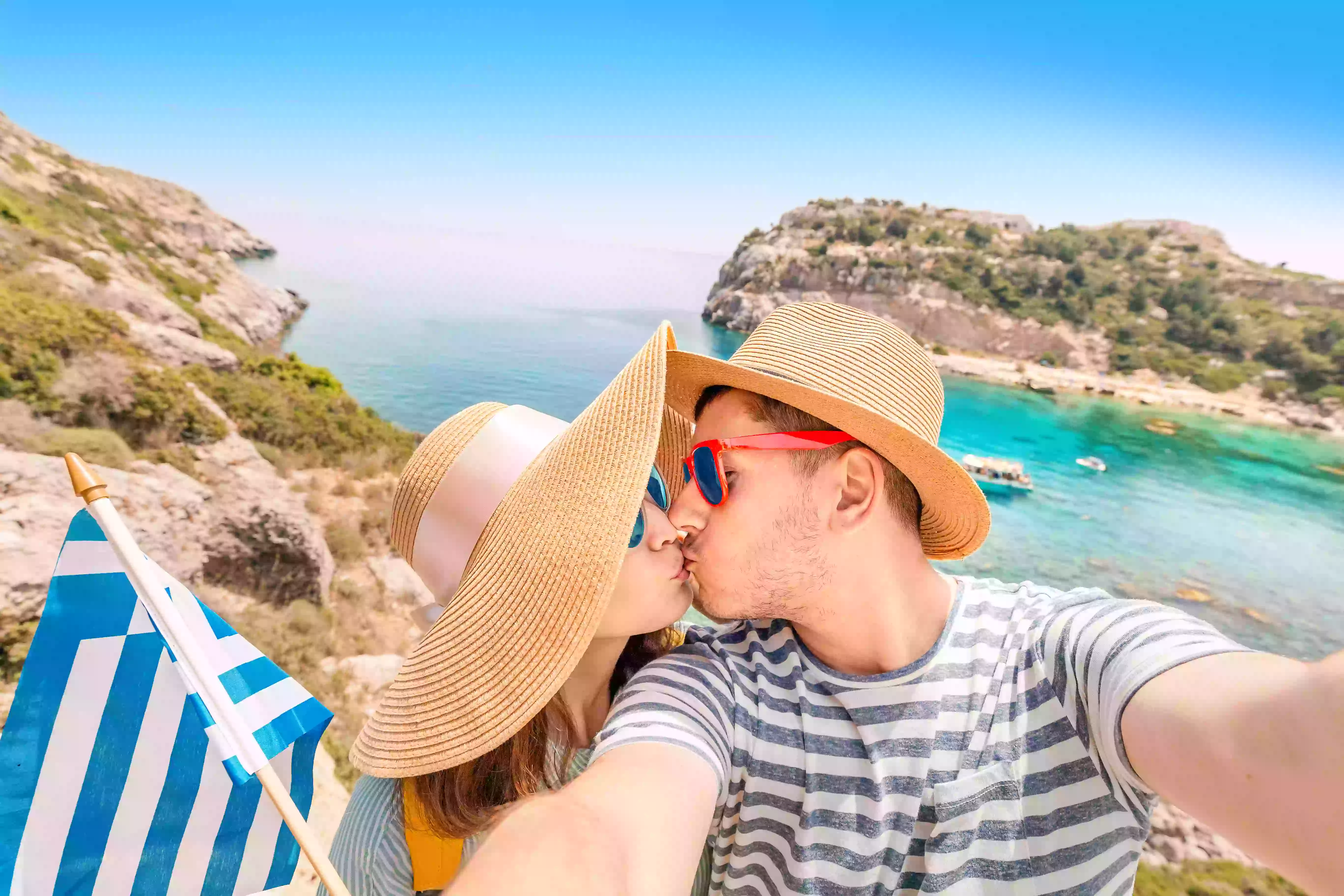Essential Iceland: A Comprehensive Guide for First-Time Travelers
Morgan Wiggins
Apr14,2023 • 4 min read

I
celand, the land of fire and ice, offers a breathtaking landscape of glaciers, geysers, volcanoes, and waterfalls, making it a top destination for travelers seeking unparalleled natural beauty and unique experiences. Before embarking on your adventure, it's essential to familiarize yourself with the ins and outs of traveling to this captivating island nation. In this comprehensive guide for first-time travelers to Iceland, we'll provide essential information on weather and climate, the best times to visit, language, currency, customs and etiquette, packing, transportation, accommodation, cuisine, and photography tips.
Weather and climate conditions in Iceland
Iceland's weather can be unpredictable, with sudden changes occurring throughout the day. The climate is classified as cold oceanic, with cool summers and relatively mild winters. Expect temperatures ranging from -1°C to 4°C in winter and 10°C to 15°C in summer. Despite its name, Iceland is not entirely covered in ice, although glaciers cover about 11% of the country. Rain and wind are common, so be prepared with waterproof clothing and sturdy shoes.
Best time to visit Iceland for various activities
When planning your trip, it's essential to consider the activities you're interested in pursuing. Here's a quick breakdown of the best times for various activities in Iceland:
- Northern Lights: The ideal time to witness the mesmerizing aurora borealis is between September and April when the nights are long and dark.
- Whale watching: Prime whale watching season is from April to October, with peak months being June through August.
- Birdwatching: Visit between April and August to witness Iceland's diverse birdlife, including the iconic puffin.
- Hiking and trekking: The optimal months for hiking are from June to September when most trails are accessible and the weather is more favorable.
- Ice caving: For a magical ice cave experience, visit between November and March, when caves are stable and safe to explore.
Icelandic language basics and common phrases
Although most Icelanders speak fluent English, learning a few basic Icelandic phrases can enhance your experience and show respect for the local culture. Here are some common phrases to help you get started:
- Hello - Halló or Góðan dag
- Goodbye – Bless
- Please – Vinsamlegast
- Thank you – Takk
- Yes – Já
- No – Nei
- Excuse me – Afsakið
- Do you speak English? - Talar þú ensky?
Currency, exchange rates, and payment methods
The Icelandic currency is the króna (ISK). It's a good idea to familiarize yourself with the exchange rate before traveling. Credit and debit cards are widely accepted, even in remote areas, making it unnecessary to carry large amounts of cash. However, having some Icelandic krónur on hand is advisable for smaller purchases or in case of an emergency. ATMs can be found in most towns and cities, and you can exchange currency at banks, post offices, and authorized exchange bureaus.
Icelandic Customs and Etiquette for Tourists
When visiting Iceland, it's important to be aware of local customs and etiquette to ensure a smooth and enjoyable trip. Here are some tips for first-time travelers:
- Respect nature: Iceland's unique and fragile ecosystems require care. Stay on marked paths, don't litter, and avoid disturbing wildlife.
- Dress modestly: Icelanders tend to dress conservatively, so try to follow suit by wearing appropriate clothing, especially in churches and other religious sites.
- Tipping: Tipping is not customary in Iceland, as service charges are usually included in the bill. However, if you've received exceptional service a small tip is appreciated.
- Swimming pool etiquette: Public swimming pools are popular in Iceland. Be sure to shower thoroughly without a swimsuit before entering the pool, as per local customs.
- Greeting: A firm handshake is the standard way to greet someone in Iceland, accompanied by direct eye contact and a smile.
Essential Iceland: A Comprehensive Guide for First-Time Travelers
Iceland, the land of fire and ice, offers a breathtaking landscape of glaciers, geysers, volcanoes, and waterfalls, making it a top destination for travelers seeking unparalleled natural beauty and unique experiences. Before embarking on your adventure, it's essential to familiarize yourself with the ins and outs of traveling to this captivating island nation. In this comprehensive guide for first-time travelers to Iceland, we'll provide essential information on weather and climate, the best times to visit, language, currency, customs and etiquette, packing, transportation, accommodation, cuisine, and photography tips.
Weather and climate conditions in Iceland
Iceland's weather can be unpredictable, with sudden changes occurring throughout the day. The climate is classified as cold oceanic, with cool summers and relatively mild winters. Expect temperatures ranging from -1°C to 4°C in winter and 10°C to 15°C in summer. Despite its name, Iceland is not entirely covered in ice, although glaciers cover about 11% of the country. Rain and wind are common, so be prepared with waterproof clothing and sturdy shoes.
Best time to visit Iceland for various activities
When planning your trip, it's essential to consider the activities you're interested in pursuing. Here's a quick breakdown of the best times for various activities in Iceland:
- Northern Lights: The ideal time to witness the mesmerizing aurora borealis is between September and April when the nights are long and dark.
- Whale watching: Prime whale watching season is from April to October, with peak months being June through August.
- Birdwatching: Visit between April and August to witness Iceland's diverse birdlife, including the iconic puffin.
- Hiking and trekking: The optimal months for hiking are from June to September when most trails are accessible and the weather is more favorable.
- Ice caving: For a magical ice cave experience, visit between November and March, when caves are stable and safe to explore.
Icelandic language basics and common phrases
Although most Icelanders speak fluent English, learning a few basic Icelandic phrases can enhance your experience and show respect for the local culture. Here are some common phrases to help you get started:
- Hello - Halló or Góðan dag
- Goodbye – Bless
- Please – Vinsamlegast
- Thank you – Takk
- Yes – Já
- No – Nei
- Excuse me – Afsakið
- Do you speak English? - Talar þú ensky?
Currency, exchange rates, and payment methods
The Icelandic currency is the króna (ISK). It's a good idea to familiarize yourself with the exchange rate before traveling. Credit and debit cards are widely accepted, even in remote areas, making it unnecessary to carry large amounts of cash. However, having some Icelandic krónur on hand is advisable for smaller purchases or in case of an emergency. ATMs can be found in most towns and cities, and you can exchange currency at banks, post offices, and authorized exchange bureaus

